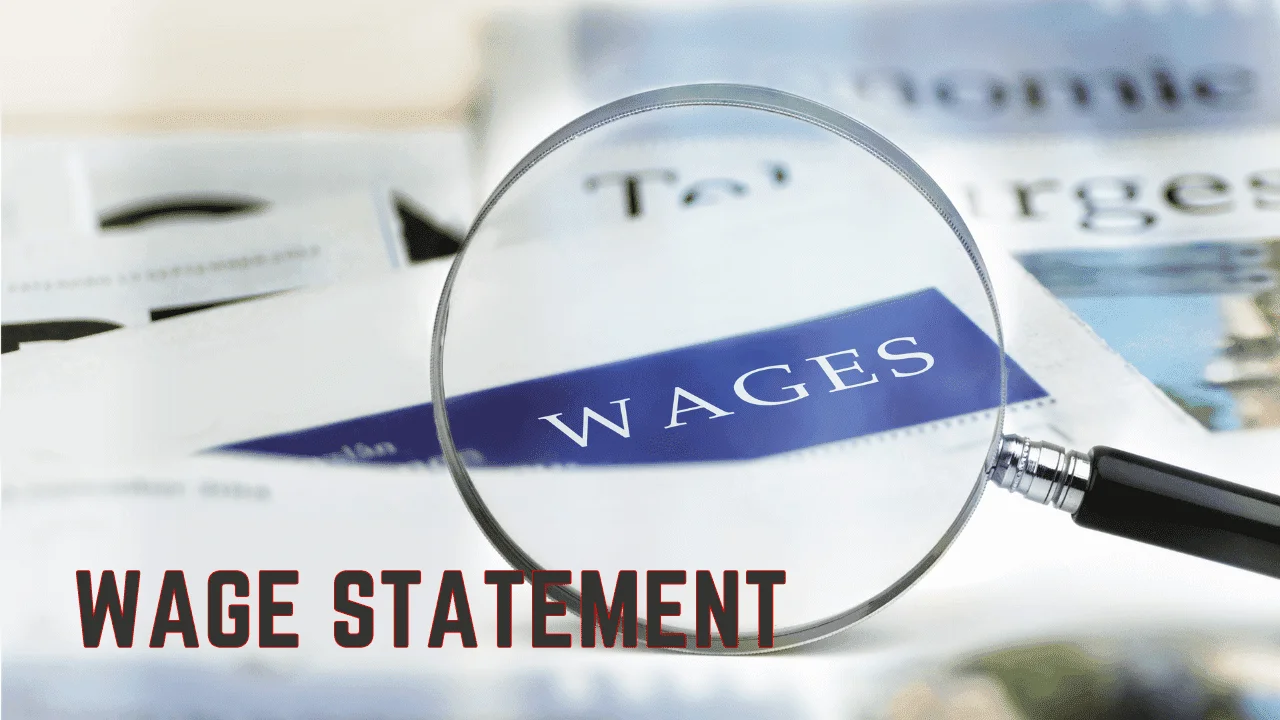In the realm of labor laws, understanding the intricacies of wage statement requirements is essential for employers, particularly those in California, a state known for its stringent regulations.
In California, wage statements, or pay stubs as they are more commonly known, must include specific details such as the employer’s name and address, the employee’s name and last four digits of their social security number, the pay period dates, and a comprehensive breakdown of their pay rates.
But what are the finer details of these requirements, and what are the potential repercussions for non-compliance? This discussion seeks to answer these questions, and more, providing a thorough exploration of the California Pay Stub requirements, their implications, and their role in promoting transparency in the workplace.
Understanding California Pay Stub (Wage Statement) Requirements
What exactly are the California Pay Stub Requirements and how do they impact both employers and employees in the state?
These regulations are a critical part of California’s labor laws, designed to ensure transparency and fairness in wage payments. They stipulate that employers must provide a detailed wage statement with each pay period, including information such as the employee’s and employer’s identification, pay period dates, hourly wage, and total hours worked. For piece-rate workers and exempt employees, additional specifics are required.
Failure to comply can result in legal repercussions for employers, including civil penalties and potential lawsuits. Conversely, employees have the right to review their payroll records and seek correction for any errors within a defined timeframe.
Identifying Exempt Employees
In the context of California’s labor laws, identifying exempt employees—an important aspect of wage and hour regulations—requires understanding both the specific exempt categories and the qualifications for exemption. Exempt employees are those who are not eligible for overtime pay, and their identification is vital for accurate wage calculations.
The following are key factors to consider:
- Exempt categories: These include administrative, executive, professional, or computer professional roles.
- Salary: Exempt employees typically earn a salary that exceeds the minimum wage.
- Job duties: The role must involve independent judgment or high-level skills.
- Misclassification: Employers must be cautious to avoid misclassifying employees, as it could lead to legal repercussions.
- Legal recourse: Employees misclassified as exempt have rights, including the ability to recover unpaid overtime.
Consequences of Employer Non-Compliance
Failure to comply with California’s wage statementA requirements can lead to significant legal consequences for employers, including violations of labor laws and potential class action lawsuits. Employers may find themselves subject to actions under the Private Attorneys General Act (PAGA) or the Division of Labor Standards Enforcement (DLSE). Penalties for non-compliance can be severe, with employers facing civil penalties, recovery of unpaid wages, and even payment of attorneys’ fees.
The maximum penalty amounts can be substantial, underscoring the gravity of these obligations. Furthermore, systemic violations of pay stub requirements can give rise to class action lawsuits, potentially exposing employers to considerable financial liability. Therefore, diligent adherence to the state’s pay stub requirements is essential for employers to avoid these onerous repercussions.
Correcting Pay Stub(wage statement) Errors
While diligent adherence to pay stub requirements can mitigate the risk of legal repercussions, it is equally crucial for employers to promptly and accurately rectify any errors that may occur in the pay stubs.
In the event of an error, California labor laws provide a 33-day window for correction. The rectified pay stubs should be provided to the employees within this stipulated timeframe.
Employers should consider the following:
- Promptly acknowledge the error and communicate with the affected employee(s).
- Conduct a thorough review to avoid repetition of the same error.
- Ensure that the corrected pay stub complies with all legal requirements.
- Document the error and its resolution for future reference.
- Provide a clear explanation to the employee about the error and its correction.
Adherence to these practices can help maintain trust and transparency in the employer-employee relationship.
The Right to Review Payroll Records
Under the jurisdiction of California labor laws, both current and former employees have the right to review their payroll records. This legislative privilege is designed to ensure transparency and fairness in the workplace. Employees can make a formal request to their employer to access these documents. Upon receipt of the request, the employer is legally bound to provide the records within 21 days. Failure to comply can result in a penalty of $750.
Employers are required to maintain payroll records for at least three years. This right extends to a comprehensive review of all wage-related documents, including pay stubs, which must detail the employee’s gross and net wages, total hours worked, deductions made, and the applicable pay period.
Requesting Payroll Records
In order to request payroll records in California, an employee must submit a formal written request to their employer, detailing the specific information they wish to review. The employer is then legally obligated to provide these records within 21 days. It’s important to note that:
- Employers are required to maintain payroll records for at least three years.
- Failure to provide these records within the stipulated period can result in a $750 penalty.
- Both current and former employees have the right to request these records.
- Disputes can be settled with assistance from the California Department of Industrial Relations.
- Employers cannot retaliate against employees for requesting these records, under California labor laws. This underscores the importance of understanding your rights as an employee.
Obligations for Providing Payroll Records
Employers in California bear a significant responsibility when it comes to providing wage statement records. Mandated by state labor laws to fulfill certain obligations, they are required to maintain accurate records of each employee’s name, address, occupation, hours worked daily and weekly, wages earned, and all deductions. This information must be kept for a minimum of three years and be readily available for inspection by the employee upon reasonable request.
If an employee leaves the company, the employer is obliged to provide access to these records for a year following termination. Non-compliance can result in penalties, including fines and potential legal action. These obligations underscore the importance of meticulous record-keeping in the realm of payroll administration.
Penalties for Non-Provision of Records
Should an employer in California fail to provide access to payroll records as mandated, they may face substantial penalties under the state’s labor laws.
- Penalties: The employer may be fined up to $750 for each instance of non-provision.
- Civil Litigation: Employees have the right to sue for damages and obtain legal fees.
- Class Action Lawsuits: If multiple employees are affected, a class action lawsuit may ensue, leading to more severe financial consequences.
- Criminal Charges: In severe cases, non-compliance could result in criminal charges against the employer.
- Reputation Damage: Beyond legal implications, such violations could tarnish an employer’s reputation, affecting their ability to hire and retain top talent.
Conclusion
In conclusion, California wage statement requirements necessitate a thorough understanding from employers, highlighting the importance of employee identification, pay details, and error correction. Failure to adhere to these mandates can result in severe consequences, including legal action and penalties.
Employers must also understand the process and obligations regarding the provision of payroll records, recognizing the significant implications of non-compliance. Thus, adhering to these requirements is not merely a legal obligation but also a strategy for maintaining a fair and transparent workplace.








